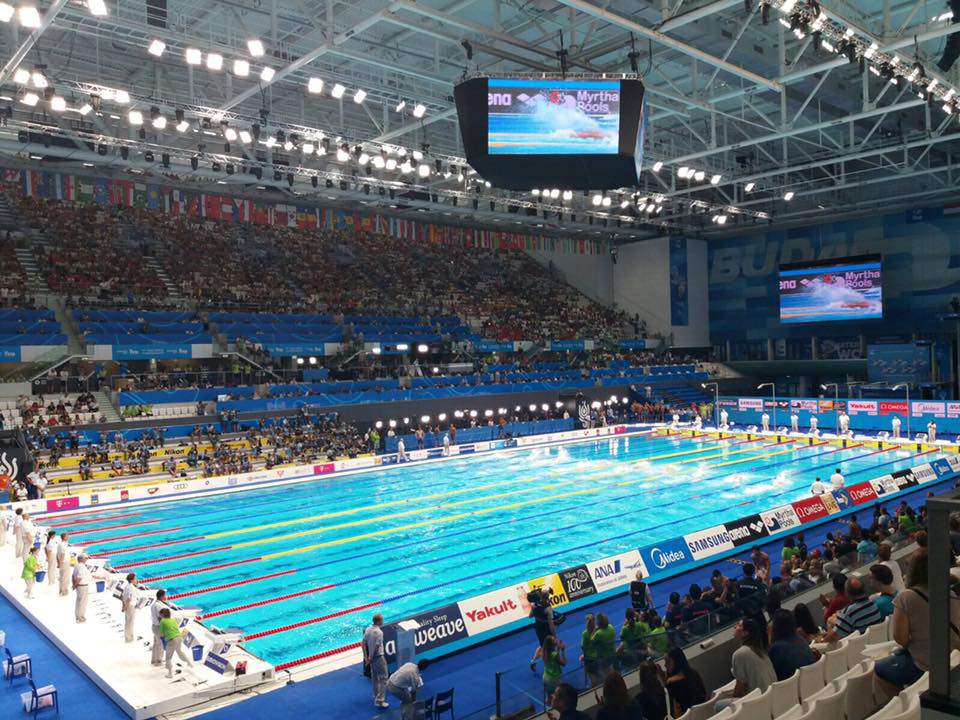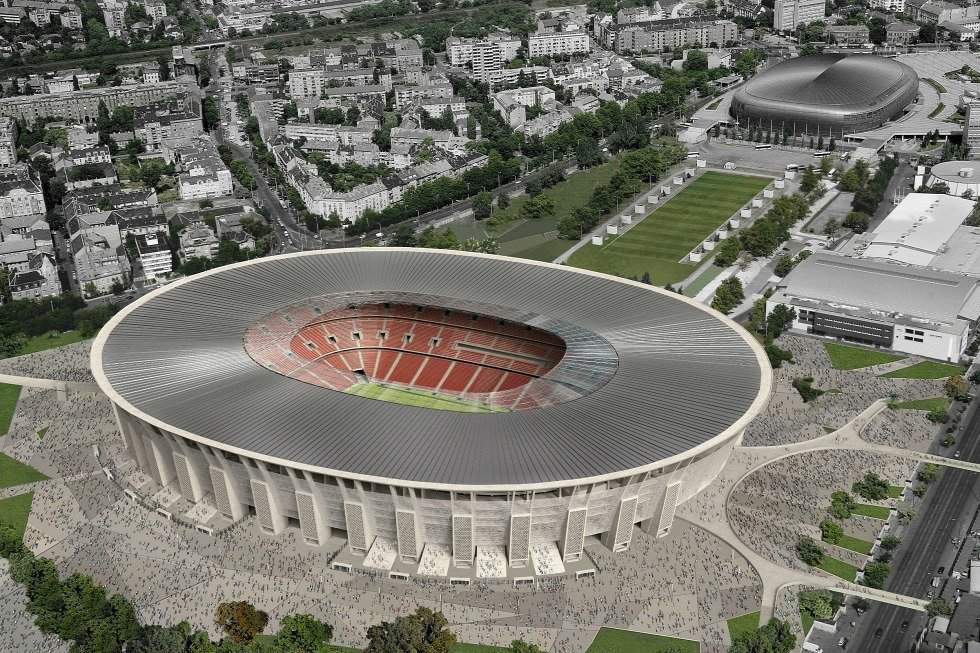Five Iconic Sporting Locations in Hungary

With a tally of 465 medals, Hungary currently holds ninth place on the all-time Olympic medals table and is the most successful nation to have never hosted the summer Olympics itself. Across the country, and in the capital of Budapest in particular, you can visit locations that have hosted many of the most memorable moments in the country’s sporting history.
The Chain Bridge
Completed in 1849 to connect the towns of Pest and Buda that faced each other across the river Danube, the Chain Bridge is not only one of the most beautiful river crossings in the world but also the centerpiece of a major sporting event. During the Red Bull Air Races, skilled pilots fly their aircraft under the bridge at speeds of up to 220mph, despite the gap between the bottom of the bridge and the river being just 30 feet. Being in such an iconic location, the air race events always draw in huge crowds of spectators who line the bank of the Danube. The bridge itself is 380 meters in length and 14.8 meters wide making it a perfect landmark for this sort of event. It’s a breath-taking sight, made all the more so by the spectacular backdrop of the beautiful parliament building on the Pest side of the river and the city beyond.
Kincsem Park
This horse racing venue was named after the Hungarian filly Kincsem – the most successful thoroughbred of all time with a still-unbeaten record of 54 wins from 54 races.
Each year the most popular events at the venue, such as the Hungarian Derby, result in some of the most intense sports betting activity throughout the country and beyond. Such events are also streamed live on the internet, giving those unable to attend the races in person the opportunity to experience all the action as it happens.
From a historical point of view, it is worth noting that sports betting in Hungary had a steep shift after the collapse of communism when the Hungarian market was monopolized. After the collapse of Communism, betting remained illegal and it existed as an underground market. The 1991 Gambling Act legalized the industry but insisted that any sports betting operator be majority owned by the state. Since Hungary joined the EU in 2004 pressure has increased on the government to relinquish its monopoly on the gambling industry and allow foreign companies to operate in the country. However, as of yet, no foreign company has successfully set up a betting operation in Hungary.
The Danube Arena
This stunning aquatics complex, featuring undulating sheets of aluminium that mimic the movements of waves, was built in just 14 months. Originally intended to host the World Aquatics Championships in 2021, it was brought forward for the 2017 competition after the city of Guadalajara in Mexico announced it could no longer afford to host the event itself. Consisting of a training pool, diving pool and two full course swimming pools, the arena has proved its world-class quality. Swimming is Hungary’s most successful sport at international level so having the chance to train in a world-class facility is only fitting for the countries aquatic athletes.

The Ferenc Puskás Stadium
Named after the greatest Hungarian footballer of all time, the Ferenc Puskás Stadium opened in Budapest in 1953. Originally built to hold 100,000 people, it was converted to an all-seater stadium reducing its capacity to around 38,000.
It was demolished in early 2017 and is being completely rebuilt with an all seater capacity of 67,889. It will retain the same name and reopen in 2019.
In the north of Hungary, in the tiny town of Felcsút, birthplace of the current Prime Minister Viktor Orbán, you’ll find a small football stadium ranked as one of the most beautiful in the world, thanks to its curved, wood-lined interior. It is the home stadium of a youth team set up in honor of the great Puskás himself, Puskás Akadémia FC. Football in Hungary has a long history dating back to the 1910’s when the country had its first national side. They have featured in several FIFA world cups, finishing as runners-up in 1938 and 1954 and the European Football Championship where they came third in 1964. The team also hold three Olympic titles and have won several other minor awards. Despite this, the national team has somewhat underperformed, failing to qualify for major international competitions for long periods of time, many therefore believe that investing in new modernized stadiums will help to boost grassroots football, which will eventually improve the performance of the national team.

Margaret Island
Situated in the center of the River Danube in central Budapest, this small island is home to the largest open-air swimming complex in Hungary, and is also home to the sports pool named after legendary Hungarian swimmer, Alfréd Hajós, which serves as a major venue for water polo matches. The perimeter of the island features a rubber-coated track that is hugely popular with runners of all levels of ability. Complete eight circuits of the track and you’ll have run a full marathon.
Keeping in mind, that Budapest is to become European capital of sport in 2019, it only makes sense to wait for even more of iconic sporting locations to become aware of. Hungary is standing tall with the pride-worthy heritage to show off to the rest of the world.
Photo: MTI
Source: Daily News Hungary







